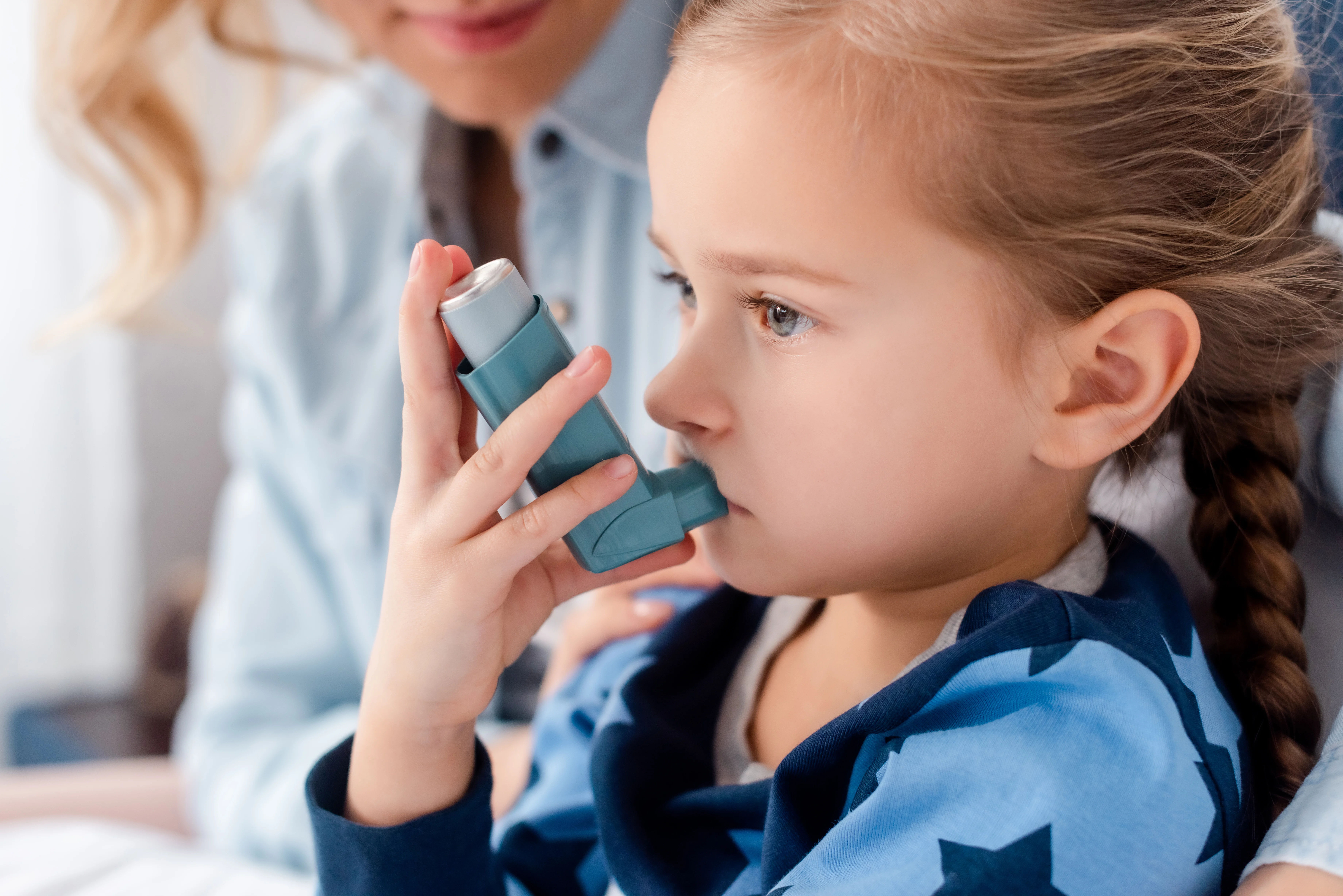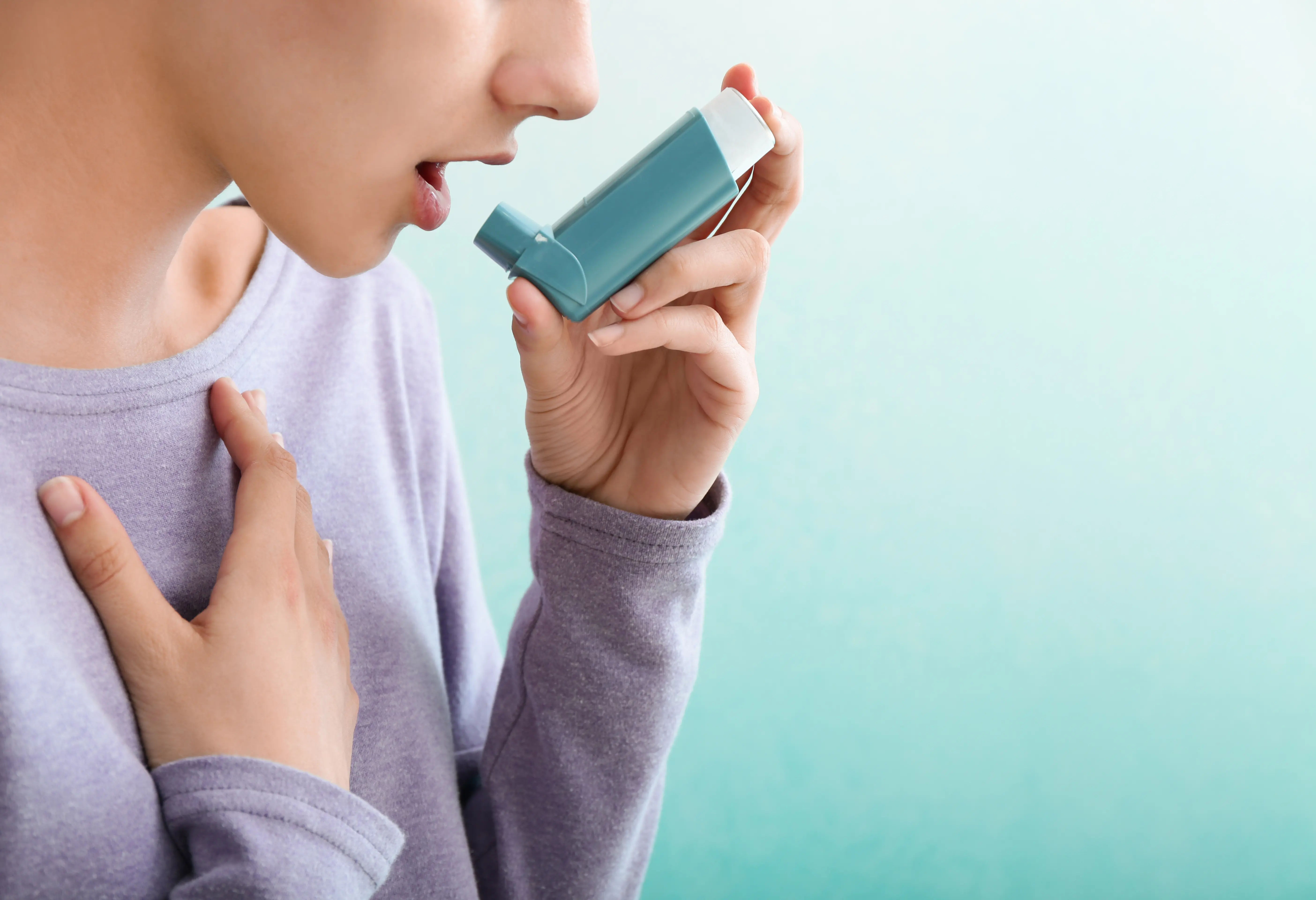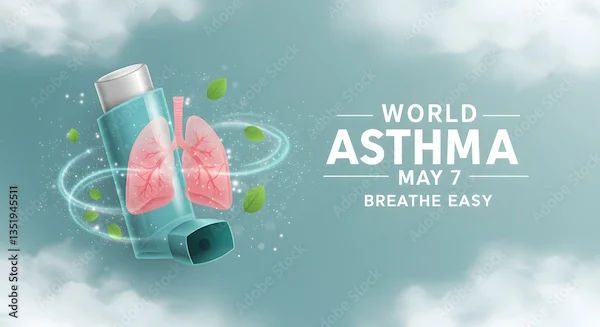Different Types Of Asthma Attacks Explained
Understand the different types of asthma attacks, including allergic, exercise-induced, and occupational asthma. Learn their triggers, symptoms, and how to manage each type effectively for better respiratory health.

Written by Dr. Siri Nallapu
Reviewed by Dr. Rohinipriyanka Pondugula MBBS
Last updated on 13th Jan, 2026

Asthma is a common respiratory condition that affects millions of people worldwide. It causes the airways to become inflamed, narrow, and produce extra mucus, making it difficult to breathe. While asthma is a chronic condition, the severity and type of asthma attacks can vary. Understanding the different types of asthma attacks can help you recognise symptoms early and take appropriate action.
In this article, we’ll explain the different types of asthma attacks, their triggers, symptoms, and how to manage them effectively.
What is an Asthma Attack?
An asthma attack, also called an asthma exacerbation, occurs when the muscles around the airways tighten (bronchospasm), the lining of the airways swells, and excess mucus is produced. This makes breathing difficult and can lead to coughing, wheezing, and shortness of breath.
Asthma attacks can range from mild to severe. Some may resolve quickly with medication, while others may require emergency medical attention.
Types of Asthma Attacks
Asthma attacks can be classified based on their triggers and severity. Here are the most common types:
1. Mild Asthma Attack
Symptoms: Slight wheezing, mild shortness of breath, and a soft cough.
Duration: Symptoms may last a few minutes to hours.
Management: Usually controlled with a quick-relief inhaler (rescue inhaler).
2. Moderate Asthma Attack
Symptoms: Noticeable wheezing, difficulty breathing, chest tightness, and persistent coughing.
Duration: Can last several hours if not treated.
Management: Requires a rescue inhaler and sometimes additional medication. If symptoms don’t improve, medical help may be needed.
3. Severe Asthma Attack
Symptoms: Extreme difficulty breathing, rapid breathing, inability to speak full sentences, bluish lips or fingernails (due to lack of oxygen).
Duration: Can be life-threatening if not treated immediately.
Management: Emergency medical treatment is necessary. Call for help if symptoms worsen despite using an inhaler.
4. Silent Asthma Attack
Symptoms: No wheezing or coughing, but severe chest tightness and difficulty breathing.
Duration: Can escalate quickly without warning.
Management: Requires immediate medical attention as it can be dangerous due to the lack of obvious symptoms.
5. Exercise-Induced Asthma Attack
Symptoms: Coughing, wheezing, and shortness of breath during or after exercise.
Duration: Usually resolves within 30–60 minutes.
Management: Using a rescue inhaler before exercise can help prevent symptoms.
6. Nocturnal Asthma Attack
Symptoms: Worsening asthma symptoms at night, including coughing, wheezing, and breathlessness.
Duration: Can disrupt sleep and last for hours.
Management: Long-term asthma control medications and avoiding nighttime triggers (like dust mites or cold air) can help.
7. Allergic Asthma Attack
Symptoms: Triggered by allergens like pollen, pet dander, or dust mites, leading to wheezing, sneezing, and nasal congestion.
Duration: Varies depending on exposure to allergens.
Management: Avoiding triggers, using antihistamines, and keeping a rescue inhaler handy.
8. Occupational Asthma Attack
Symptoms: Triggered by workplace irritants like chemicals, fumes, or dust, causing coughing, wheezing, and chest tightness.
Duration: Symptoms may improve when away from the workplace.
Management: Reducing exposure to irritants and using prescribed asthma medications.
Common Triggers of Asthma Attacks
Different factors can trigger asthma attacks, including:
Allergens: Pollen, mould, pet dander, dust mites.
Respiratory infections: Colds, flu, sinus infections.
Irritants: Smoke, pollution, strong odours, cold air.
Exercise: Especially in cold or dry air.
Stress & strong emotions: Anxiety, crying, or laughing hard.
Medications: Aspirin, NSAIDs, or beta-blockers (in some people).
How to Manage Asthma Attacks?
Here’s how to manage asthma attacks:
1. Quick-Relief Medications (Rescue Inhalers)
Short-acting beta-agonists (like albuterol) help relax airway muscles quickly.
Always carry your rescue inhaler and use it as prescribed.
2. Long-Term Control Medications
Inhaled corticosteroids, leukotriene modifiers, and combination inhalers help prevent attacks.
3. Avoid Triggers
Identify and minimise exposure to your asthma triggers.
Keep your home clean, use air purifiers, and avoid smoking.
4. Monitor Your Breathing
Use a peak flow meter to track lung function and detect early signs of an attack.
5. Follow an Asthma Action Plan
Work with your doctor to create a personalised plan detailing when to take medications and when to seek emergency help.
6. Stay Healthy
Get vaccinated for flu and pneumonia.
Exercise regularly (with precautions).
Eat a balanced diet rich in anti-inflammatory foods (fruits, vegetables, omega-3s).
When to Seek Emergency Help?
Call for emergency medical assistance if:
Breathing becomes extremely difficult.
Lips or fingernails turn blue.
Rescue inhaler doesn’t provide relief.
You’re unable to speak properly due to breathlessness.
Conclusion
Asthma attacks can vary in type and severity, but with proper management, most people with asthma can lead active, healthy lives. Recognising your triggers, taking prescribed medications, and having an action plan in place can help prevent severe attacks.
If you or a loved one experiences frequent asthma symptoms, consult a healthcare provider for a proper diagnosis and treatment plan.
Need expert advice? Book a consultation with an asthma specialist on Apollo 24|7 today for personalised care and support.
Consult Top Specialists
Consult Top Specialists

Dr. Anand Ravi
General Physician
2 Years • MBBS
Bengaluru
PRESTIGE SHANTHINIKETAN - SOCIETY CLINIC, Bengaluru

Dr Aakash Andgi
General Physician/ Internal Medicine Specialist
9 Years • MBBS MD
Bengaluru
Apollo Clinic, JP nagar, Bengaluru

Dr. Ashita Kuruvilla
General Physician/ Internal Medicine Specialist
7 Years • MBBS
East Midnapore
VIVEKANANDA SEBA SADAN, East Midnapore

Dr. Sudhashree R
General Physician/ Internal Medicine Specialist
13 Years • MBBS, MRCEM
Bengaluru
Apollo Clinic, JP nagar, Bengaluru

Dr. Arif Ahmed
General Physician/ Internal Medicine Specialist
9 Years • MBBS, MD (Genl. Med.)
Kolkata
MCR SUPER SPECIALITY POLY CLINIC & PATHOLOGY, Kolkata




